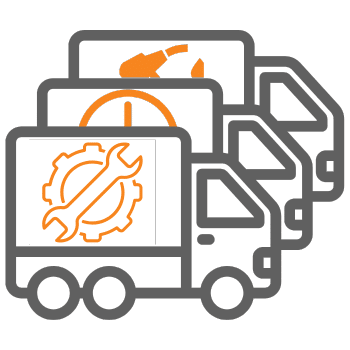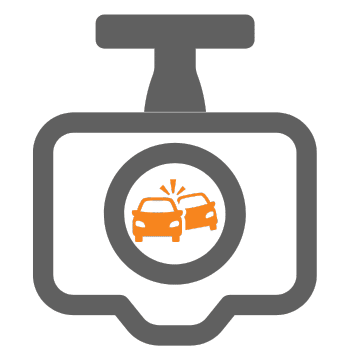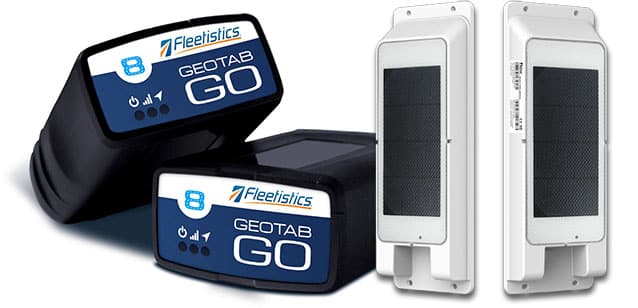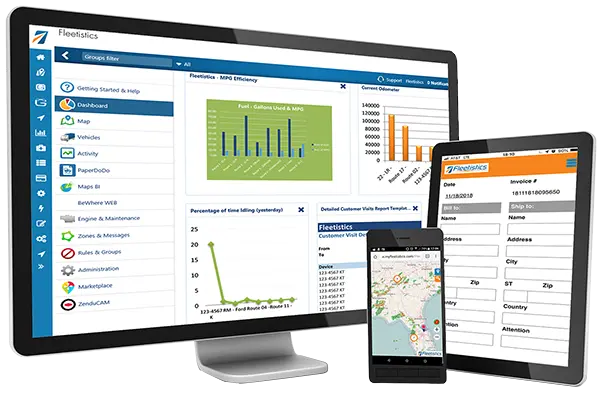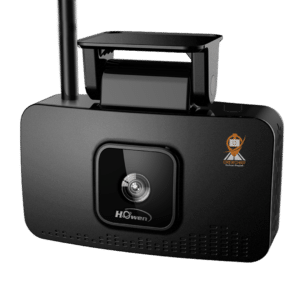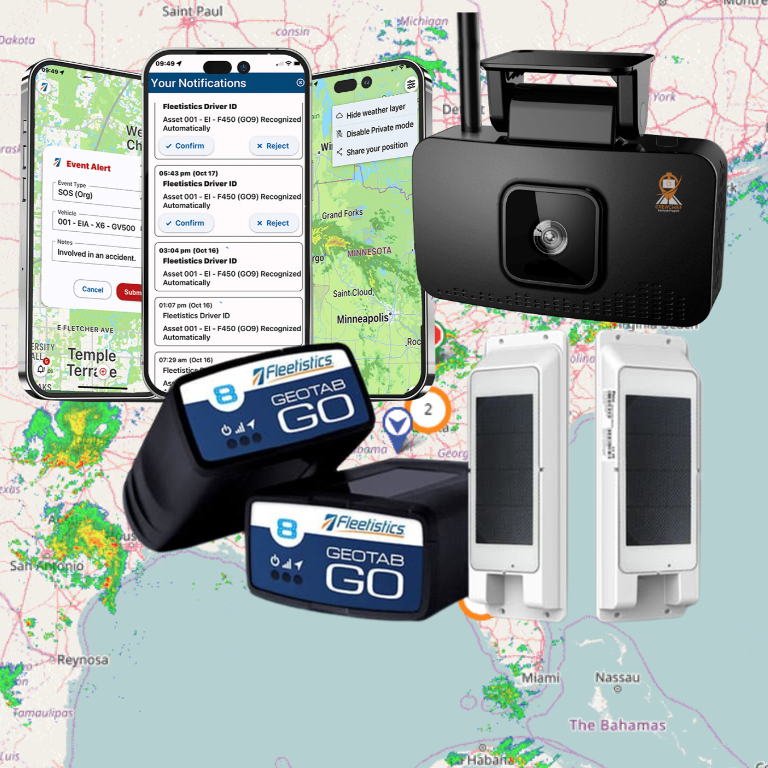Introduction
In the modern world, technology plays a crucial role in enhancing efficiency and security. One such technology is the vehicle tracking system. A vechicle tracking system leverages GPS and asset tracking to provide real-time data. A game-changer for both personal and business use.
In this article, we delve into the benefits of vehicle tracking. We’ll explore how it can improve route planning, reduce fuel consumption, and enhance safety. This guide explains how vehicle tracking systems benefit fleet managers and business owners in different industries.
These industries include HVAC, plumbing, delivery, trucking, law enforcement, and public works. Vehicle tracking systems can also help any other fleet on the road.
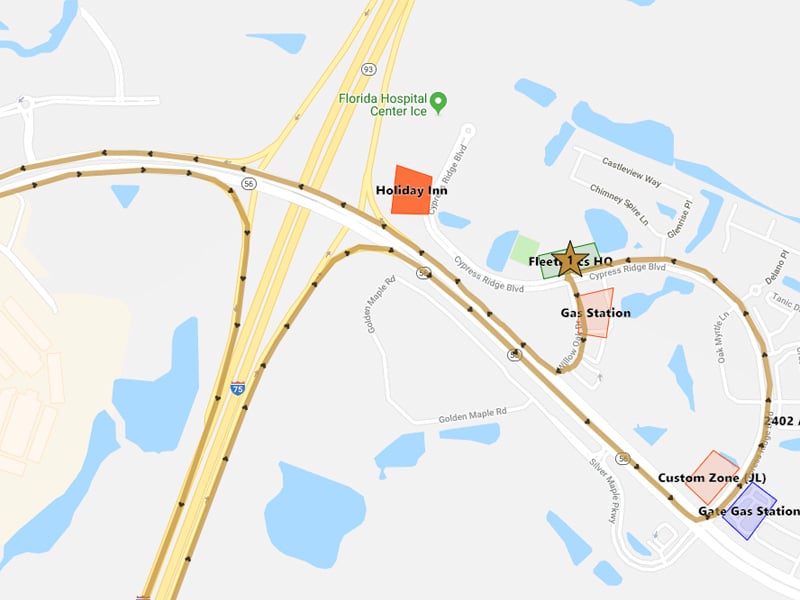
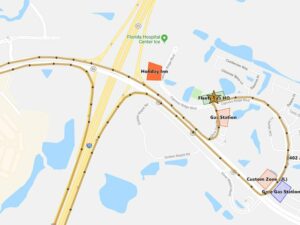
Understanding Vehicle Tracking Systems
A vehicle tracking system is a powerful tool. It tracks and records a vehicle’s location in real-time using GPS and cell network technology. This system relies on a network of GPS satellites circling the globe.
These satellites provide precise location, speed, and altitude data. The GPS system transmits the data to a server where it is connected to a web page for fleet managers to view.
Fleet management can access the data from the server through a software interface. This interface provides a visual representation of the vehicle’s location, stops, route, etc.
Key features of a vechicle tracking system include:
- Real-time tracking
- Historical data analysis
- Route planning
- Fuel consumption monitoring
- Safety alerts
How GPS Tracking Works in Vehicle Tracking
GPS, or Global Positioning System, is the backbone of vehicle tracking. The system uses signals from multiple satellites. These signals help calculate the precise location of a vehicle.
This GPS tracking signal is then sent to the tracking system. This data allows for real-time tracking and historical examination.
The Role of Asset Tracking in Vehicle Management
Asset tracking is a key component of vehicle tracking. It’s about more than just knowing the location of a vehicle.
Asset tracking provides data on the condition and status of an asset, equipment, or vehicle. This includes information like fuel levels, engine status, battery level, and more.
This data is invaluable for fleet managers. It allows for proactive maintenance, reducing downtime and costs.
Key Benefits of Vehicle Tracking Systems
Vehicle tracking systems offer numerous benefits. They can improve efficiency, reduce costs, and enhance safety.
These systems provide real-time location data. This allows for better route planning and scheduling. They also provide historical data. This can be used to identify trends and make informed decisions.
Key benefits of vehicle tracking systems include:
• Improved efficiency
• Reduced costs
• Enhanced safety
• ELD compliance
• Driver scoring
• Fleet analytics and reporting


Improved Efficiency and Route Planning
One of the main benefits of vehicle tracking is improved efficiency. This is achieved through better route planning. Using real-time location data, you can plan the most efficient routes. This can reduce travel time and increase productivity.
With a rolling cost per mile close to $2.00, every mile counts. Reducing the number of miles per day will have an immediate impact on fleet efficiency and profitability.
Historical data can also be used to identify traffic patterns. This can help avoid delays and further improve efficiency. Using a truck routing platform such as Route4Me ensures efficient routes with minimal miles driven.
Cost Savings: Fuel Consumption and Insurance Premiums
Vehicle tracking can also lead to significant cost savings. This is especially true regarding fuel consumption.
By planning more efficient routes, you can reduce the amount of fuel used. This can lead to substantial savings over time. Fleets can easily monitor idle time and route compliance which all impact fuel consumption.
Vehicle tracking can also lead to lower insurance premiums. Many insurance companies offer discounts for vehicles equipped with tracking systems.
Adding a fleet dashcam, like the CrewChief video camera, enhances the overall “picture” available to fleet management
Enhanced Safety and Security Measures
Safety is another key benefit of vehicle tracking. The system can monitor a driver’s behavior and send alerts for unsafe practices.
The Geotab GPS tracking system is one of the best asset tracking systems on the market. This can help improve driver safety and reduce the risk of accidents.
Vehicle tracking can also enhance security. If theft occurs, the system can provide the vehicle’s location for vehicle recovery. A covert installation will enhance the chances for a successful vehicle recovery.
Compliance and Reporting Made Easy
Vehicle tracking systems can also simplify compliance and reporting. The system can automatically record data required for regulatory compliance. ELD for truck drivers is an essential tool to be in CSA compliant.
The Geotab ELD tracks a vehicle’s location in real-time using GPS and cell network technology. It helps truckers monitor their hours and follow specific rules. You can easily access and export this data for reporting purposes.
This not only saves time but also ensures accuracy and consistency in reporting.
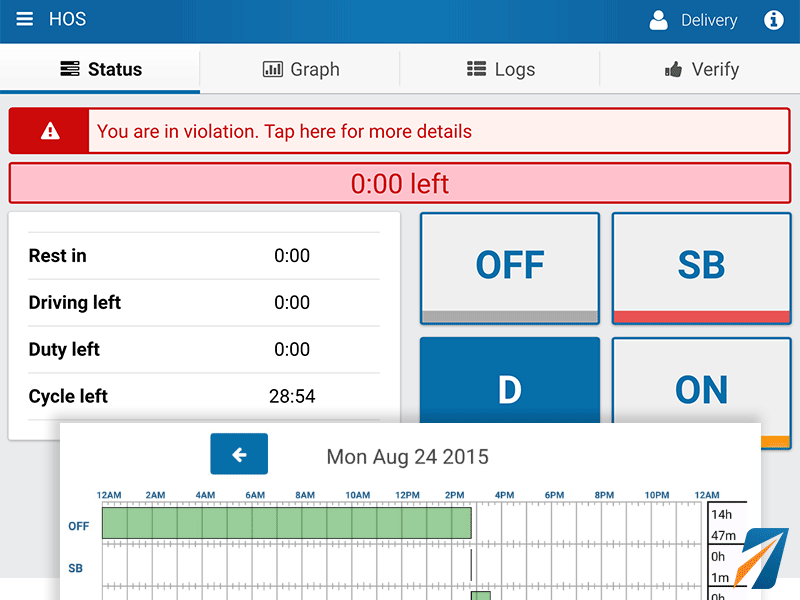
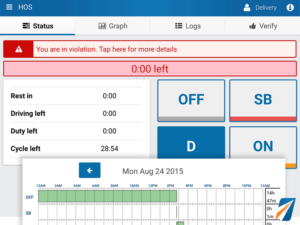
Vehicle Tracking for Fleet Management
Vehicle tracking systems are a game-changer for fleet management. They provide valuable insights that can improve operations and bottom line.
With real-time location data, fleet managers can better coordinate and dispatch vehicles. This can lead to improved customer service and increased productivity.
You can also use historical data for strategic planning. It can help identify trends, optimize routes, and plan for future growth.
Real-Time Monitoring and Alerts
Real-time monitoring is a key feature of vehicle tracking systems. It allows for instant decision-making and quick response to situations.
When issues arise a GPS vehicle tracking system provides a faster response time. Demonstrated driver safety improvement can also lead to lower insurance costs, all in real-time.
For example, if a vehicle deviates from its planned route, the system can send an alert immediately. This allows for quick corrective action and reduces wasted labor dollars.
You can also use real-time monitoring for safety purposes. It can send alerts for speeding, harsh braking, or other unsafe driving behaviors. This can help improve driver safety and reduce the risk of accidents.
Driver safety is critical for moral and business reasons.
Choosing the Right Vehicle Tracking System
Choosing the right vehicle tracking system is crucial. It should align with your specific needs and goals.
Consider factors like real-time tracking, reporting features, and alert systems. Also, look at the system’s reliability and the provider’s customer support.
A fleet management system is more comprehensive than a GPS vehicle tracking system. A fleet management system integrates with other fleet software and helps manage different fleet administrative tasks.
Remember, a good vehicle tracking system is an investment. It should offer value for money and contribute to your business growth. Best in class fleet managers often experience an ROI of about $2,500 per year!
Orkin Pest Control has been using GPS trackers for over 20 years and has provided a case study of their experience.
Integration and Scalability for Business Growth
A good vehicle tracking system should be scalable. It should be able to grow with your business.
It should also integrate well with your existing systems. This can help streamline operations and improve efficiency.
For instance, integration with your dispatch system can improve scheduling. Integration with your accounting system can simplify billing and payroll.
User-Friendly Interfaces and Mobile App Integration
User-friendly interfaces are important in a vehicle tracking system. They can make the system easier to use and reduce training time.
Look for systems with intuitive dashboards and easy-to-understand reports. This can help you quickly grasp the data and make informed decisions.
Additionally, think about incorporating mobile applications, like CrewChief. This can allow for on-the-go tracking and management, providing flexibility and convenience.
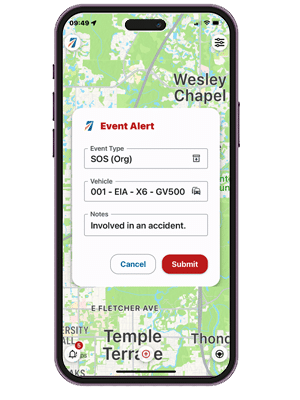
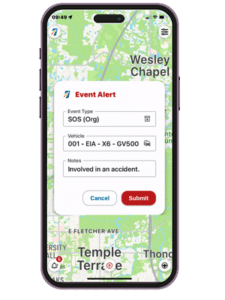
Conclusion: The Future of Vehicle Tracking
Vehicle tracking systems are evolving rapidly. With advancements in IoT and AI, we can expect more sophisticated features and capabilities.
These systems will continue to play a crucial role in enhancing efficiency, safety, and cost savings. Embracing this technology is a smart move for any business or individual.
Keeping up with the newest vechicle tracking technology can help businesses and individuals save money and work more efficiently.
With the integration of IoT and AI, the possibilities for vehicle tracking systems are endless. From real-time monitoring to predictive maintenance, these systems are becoming more powerful and versatile than ever before.
In today’s fast-paced world, having a modern vechicle tracking system is not just smart, but necessary. By implementing the right telematics system, businesses can make their operations more efficient, enhance safety, and boost profits.
As technology continues to advance, the future of vehicle tracking looks bright, promising even more innovative solutions to come.


Get industry tips and insights
Sign up for monthly news and tips from our award-winning fleet management blog. You can unsubscribe at any time.
